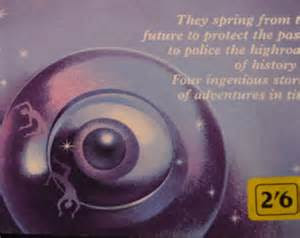A particular causal sequence may be so long and complicated that it is impossible to discover its every stage and detail. This is even more so if the sequence involves human actions, therefore also conscious perceptions and motivations. An explosion causes destruction but a motive for murder may not cause murder. (A witness thought that he saw one man deliberately ram another man's car. What he in fact saw was the first man deliberately reversing his car and that car ramming the second man's car.)
Time travelers may be able to follow a causal sequence back through time. However, they must often observe and inquire discreetly. In the Time Patrol timeline, the existence of time travel must be kept secret until a far future date. In any case, if time travelers are seen to be observing or are recognized as time travelers, then this will affect the behavior of those that they are observing and will thus change the sequence of events.
The problem is magnified if the causal sequence itself involves time travel. If one of the events in an observed sequence is the arrival of a temporal vehicle, then that vehicle has departed from another time, past or future. It is no longer sufficient for the observers simply to continue moving backwards in time. If, as in the Time Patrol universe, time travel is in fact space-time travel, then the vehicle may also have departed from another place. The problem is magnified even further by variable reality. An arriving time machine may not have departed from any past or future time...
When researchers obtain their own copy of Tacitus' Histories, they find that it differs from the standard version. Everard wonders:
"Sheer happenstance; or was it? (Causality can double back on itself in strange ways.)" ("Star Of The Sea" IN Time Patrol, p. 486)
So strange that even the Patrol will not be able to unravel them?
"'Of the Histories, the oldest copy that survived contained only four books of the original twelve, and part of the fifth. That part broke off in the middle of describing what we have become troubled about. Naturally, when time travel is developed, an expedition will in due course go to his era and recover the lost sections.'" (p. 484)
Copies have been recovered and accepted as "standard." However, the newly obtained copy diverges but:
"'...the chronicle as such, the narrative line, does not split until the fifth book, very soon after the scene where the copy that survived breaks off. Is this coincidence?'
"'I dunno,' Everard replied, 'and better we pass that question by. Kind of spooky, huh?'" (p. 487)
They never do return to that exact question. Anderson's narrative generates the impression of unexplained mysteries.

1 comment:
Kaor ,Paul!
Just an absurdly petty suggestion: in your second paragraph you used the word "discretely." From context you meant "discreetly." I think the second word should replace the first.
Sean
Post a Comment